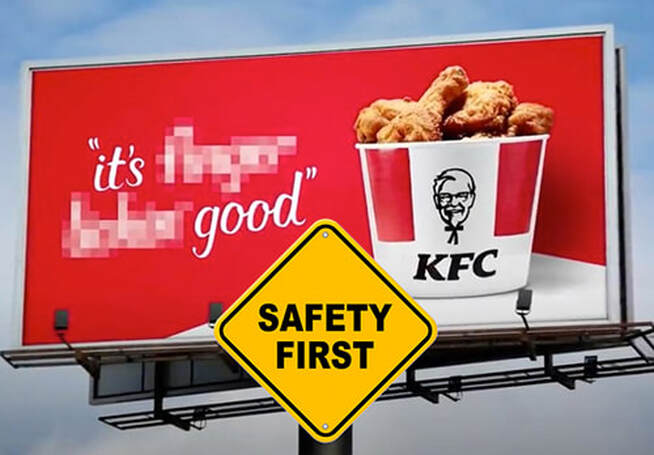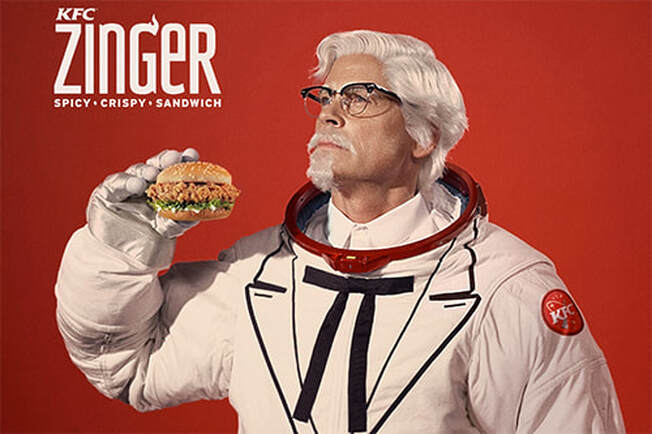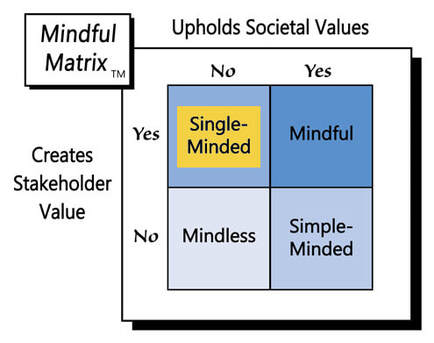author of Honorable Influence - founder of Mindful Marketing
Firms are fortunate if people remember their slogans for a few minutes, let alone days, weeks, or months. To create a theme that endures for decades is a creative coup that only the best marketing minds can claim, e.g., Just Do It (Nike), You’re in Good Hands (Allstate), The Real Thing (Coca-Cola).
KFC first served its iconic Finger Lickin’ Good tagline more than a half century ago. A restaurant manager reportedly cooked up the storied slogan in 1956, “off the cuff.”
Fast forward to August 2020, when many media began broadcasting the big news: In a show of public support, KFC decided to suspend its Finger Lickin’ Good slogan. Catherine Tan-Gillespie, KFC’s global chief marketing officer, explained the move saying that the slogan “doesn't feel quite right” or “fit in the current environment” in which licking one’s fingers violates best practices for avoiding the virus.
As a marketing professor who enjoys slogans and pays special attention to their use, I was surprised by the story for two reasons:
- I thought KFC had already stopped using its one-time staple slogan.
- I don’t recall any tagline ever grabbing so much publicity, especially for being taken off the menu.
In short, I was suspicious: Was the fast food giant’s concern for public safety genuine, or was the firm actually feeding consumers a line?
Because of other priorities, KFC's decision dropped off my radar, until a student in one of my marketing classes restored it: He shared an article he’d read about the suspended slogan and offered his assessment of KCF’s strategy, calling it “Mindful Marketing.”
When I questioned the motives behind the company’s move, much of the class clapped back against their professor, in support of their fellow student (they always do that). However, their reaction made me even more suspicious of hoodwinking, which doubled my determination to understand what was really happening.
It had been a while since I paid much attention to KFC. About five years ago I wrote a piece about the firm that wasn’t exactly flattering: I described how KFC’s own ads were lampooning, of all people, its deceased founder, the hard-working visionary Harland Sanders. I argued that he and any departed person deserved better.
So, I set out to investigate my hypothesis that KFC’s theme recall was less about protecting people’s health and more about grabbing headlines. The first step was to see if the company had been using its classic Finger Lickin’ Good theme before the August announcement. If you remember above, I said that I didn’t think it had been. Well, I was right . . . and wrong.
I found one website that catalogs companies’ slogans and another that curates their commercials, which I spent too much time watching. In the process, though, I discovered that for a few decades KFC had used in its ads a wide variety of other taglines with no mention of the iconic one, for instance:
- There’s Fast Food, Then There’s KFC
- Nobody Does Chicken Like KFC
- Chicken Capital USA
- KFC What’s Cookin’
- Life Tastes Better with KFC
- Taste the Unfried Side of KFC
- So Good
- Taste the Fiery Grilled Wing Side of KFC
- Today Tastes So Good
However, I was wrong in that KFC did recently reprise Finger Lickin’ Good in its ad campaigns featuring Colonel Sanders fakes. Over a period of about five years, the company has employed an incredible 18 different ‘colonels,’ ranging from Rob Lowe to Reba McEntire. Most of these commercials have used Finger Lickin’ Good.
Watching KFC ads, which were often entertaining, was the easy part. The hard part is supporting that the company’s motives in pulling the classic slogan are not as pious as they appear. Here are four reasons I still maintain that KFC’s tagline tactic is more than a little suspicious:
1. Poor Health History: This is the same company that three decades ago, amid growing public concern about the health effects of fried foods, changed its name to an acronym rather than significantly altering its product line. It’s also the same firm that promotes $5 Fill Up Meals, which contain a whopping 2,160 calories, 104 grams of fat, and 202 carbs.
People certainly need to be careful about coronavirus, but if KFC is truly concerned about consumers’ health, why does it appear apathetic to heart disease—the leading cause of death in America?
2. Rap Sheet of Irreverence: While KFC hasn’t been known for championing healthiness, it does have a reputation for insolence. It’s commercials featuring the Colonel Sanders imposters, are prime examples of the offhand humor, which makes fun of people in all sorts of social situations while also roasting its founder. So, if KFC doesn’t take itself and its customers seriously, why should we believe that jettisoning Finger Lickin’ Good isn’t also a joke?
3. Expert Agreement: CNN has described KFC’s tagline takedown as a “clever” “marketing campaign.” Although, I take issue with the news conglomerate’s implication that all marketing is manipulative, it’s worth noting that the media giant sees KFC doing the same thing I do: making a weakly-veiled attempt to gain brand exposure.
4. Reverse Psychology Strategy: The most compelling evidence that KFC’s slogan stoppage is a stunt can be ‘somewhat seen’ in its own advertising. Rather than removing the tagline entirely from billboards and chicken buckets, the company simply blurred two of the four words to read: It’s - - - - - - - - - - - - - good! In addition, a video showing images of the same items ends with the message, “That thing we always say. Ignore it. For now.”
In psychological terms, KFC is using ironic process theory, which holds that “deliberate attempts to suppress certain thoughts actually make them more likely to surface.” The classic example is telling someone not to think about a pink elephant.
KFC’s ‘don’t think about it’ strategy reminds me of Doritos 2019 “No Logo” commercial in which the company intentionally kept its brand name and mark out of a 60-second TV spot in order to play on consumers’ curiosity and create a buzz. Given how often the commercial was shared, the strategy seemed to work.
Many people, however, have seen through KFC’s charade. In the UK, the Advertising and Standards Authority (ASA) has received 163 complaints about the ads. These critics and others can tell when an organization is truly trying to be socially responsible and when it’s just giving Finger Lickin’ lip service.
It’s nice when large companies wield their significant influence to nudge people in a positive direction, especially one that keeps them from harm during a pandemic. However, a firm pretending to encourage consumer well-being, when it's really just trying to grab publicity should make all of us at least a little sick to our stomachs.
In a best case scenario, the public just laughs off KFC’s ploy. In a worst case, the company’s irreverence encourages people to take virus-prevention measures less seriously, placing themselves and others at greater risk of COVID-19.
Kudos, KFC, for removing the inappropriate tagline. However, this food marketing critic still gives you a poor review for cooking up a big serving of “Single-Minded Marketing.”
Learn more about the Mindful Matrix.
Check out Mindful Marketing Ads and Vote your Mind!





 RSS Feed
RSS Feed